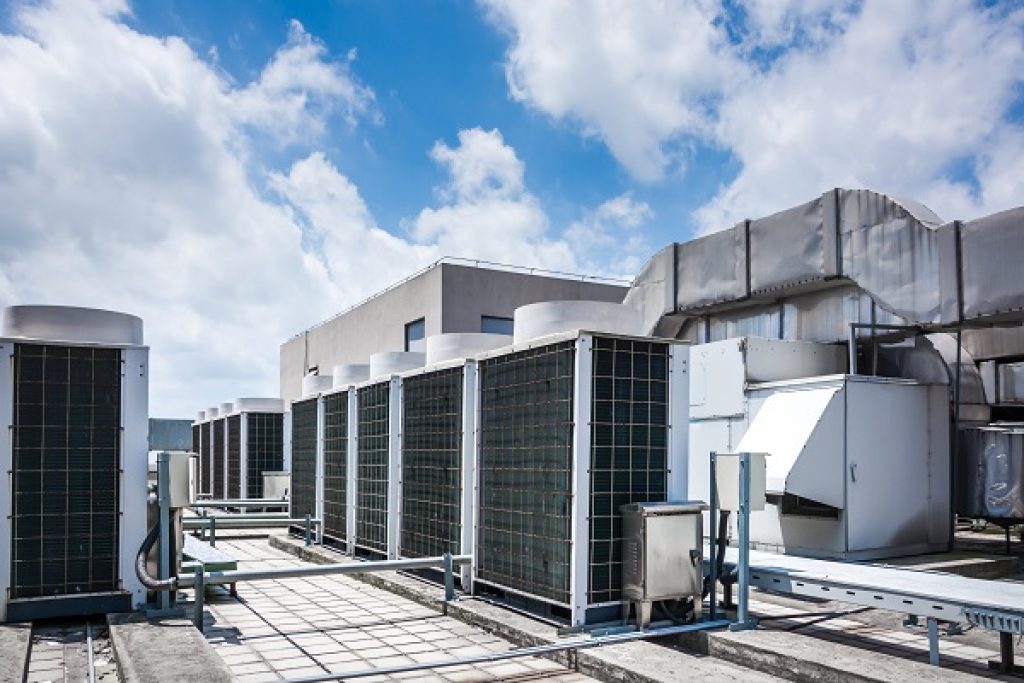As the summer heat rolls in, your air conditioning unit becomes an invaluable asset in keeping your home cool and comfortable. Over 88% of U.S. households use AC for optimal indoor comfort. But to ensure your unit always operates at peak performance, regular maintenance is essential.
Proper maintenance not only helps you avoid costly repairs. From cleaning or replacing air filters to checking electrical connections and scheduling professional maintenance, each step is crucial in extending your AC system’s longevity.
This blog post will discuss a range of AC maintenance tips that will help you keep your unit in top shape, maximize its efficiency, and extend its lifespan.

- Clean or replace air filters
The air filters prevent dust, dirt, and other debris from penetrating the AC unit and circulating throughout your home. Over time, these filters can become clogged, hindering airflow and reducing your AC’s efficiency. Thus, it’s recommended to clean or replace them every one to two months or as specified by the manufacturer. This simple task can improve indoor air quality, enhance energy efficiency, and prolong your unit’s lifespan.
You may also hire an a/c repair technician to help clean or replace your air filters when needed. Considering that they have the skills and correct tools for filter replacement, you can ensure that they accomplish the job properly and in no time.
- Check and clean the coils
The condenser and evaporator coils in your AC system play a crucial role in the cooling process. Over time, they can accumulate dirt, reducing their ability to transfer heat effectively. So, inspect and clean the coils periodically. Gently brush off or use a vacuum cleaner with a soft brush attachment to eliminate dirt or debris buildup. Clean coils ensure efficient heat transfer, improve cooling performance, and boost your AC unit’s lifespan.
In contrast, neglecting the evaporator and condenser coils may eventually cause them to deteriorate. When that happens, your AC won’t be able to cool your home or, worse, break down altogether. Damaged coils are one of the indications that you’ll need to consider replacing your unit. Check out this video for more insights into the frequency of AC unit replacement.
- Schedule professional maintenance
While there are several maintenance tasks you can handle yourself, it’s important to schedule professional AC maintenance at least once a year. An expert technician can perform a comprehensive inspection, clean the internal components, lubricate moving parts, and determine potential issues before they evolve into major problems. Professional maintenance keeps your AC system in top condition, improves energy efficiency, and prolongs its lifespan.
If the technician finds irreparable problems in your unit, they may recommend you for an air conditioning replacement. This may be ideal, particularly if repairing and restoring your AC is more expensive than buying a new one.
- Inspect and clean the condensate drain line
The main function of a condensate drain line is to remove excess moisture from your AC unit. If it becomes clogged with dirt, algae, or debris, it can lead to water leakage and potential damage. Thus, regularly inspect and clean the condensate drain line to prevent blockages. You can flush and rinse this component with a bleach and water mixture to clear any buildup. Doing so will keep the drain line clean, prevent water damage, and ensure the proper functioning of your AC system.
- Keep the outdoor unit clear
The outdoor unit of your air conditioner requires proper airflow to function optimally. Thus, ensure at least three feet of clearance around it, removing any vegetation, leaves, or debris that might obstruct the airflow. Regularly inspect the outdoor unit and clean it gently with a hose to eliminate dirt and dust buildup.
- Check and tighten electrical connections
Faulty electrical connections can cause your AC unit to malfunction or even stop working. For instance, loose connections can lead to overheating or electrical hazards. Regularly inspect the electrical connections and ensure they’re tight and secure.
If you notice any loose wires or connections, tighten them carefully, or better yet, call a professional technician to handle the task. This helps ensure your AC unit’s safe and reliable operation.
- Monitor and adjust thermostat settings
Keeping an eye on your thermostat settings can help optimize energy usage and reduce unnecessary strain on your AC unit. Set your thermostat to moderate temperature and avoid extreme temperature fluctuations. You can use a programmable or smart thermostat to easily schedule temperature adjustments based on your daily routine.
Using your thermostat wisely can enhance energy efficiency and prevent wear and tear on your AC system.
- Inspect and clean air ducts
Naturally, your electric bill is higher when you have an AC system at home. However, it can actively increase over time if dust, debris, and even mold accumulate in your air ducts. These particles can hinder airflow and decrease your unit’s efficiency.
So, inspect your air ducts for visible signs of dirt or mold and clean them as necessary. Utilize a vacuum cleaner or hire a professional duct cleaning service to ensure successful results. Such practices promote better indoor air quality, reduce AC unit strain, and lower energy bills.
The bottom line
Caring for your AC unit through regular maintenance is crucial for extending its lifespan and ensuring excellent cooling and heating performance. With these tips, you can enjoy a well-functioning AC system that provides optimal comfort for years.
Don’t neglect the maintenance of your AC unit; it’s an investment that pays off in improved efficiency, lower energy bills, and a cozier home.